“You can’t be what you can’t see”: Playwright Libby Liburd discusses Fighter and the need for true representation on the stage
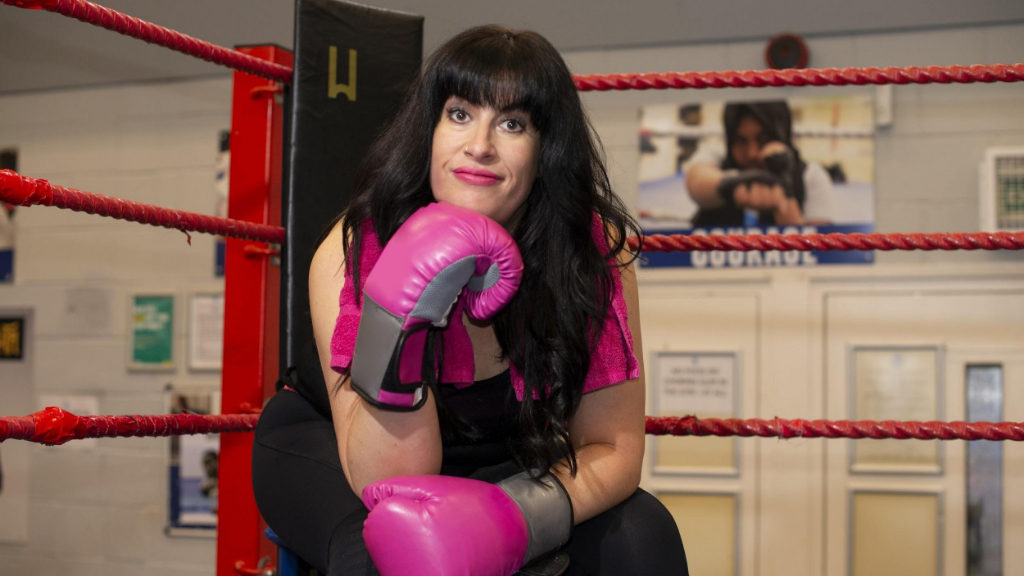
Known for not pulling any punches, Libby Liburd is a respected actor and writer whose string of female-centric plays pound with authentic humour, honesty and heart. The playwright is a fierce activist and devoted single mother, creating politically relevant stories that shine a light on the real struggles of the unrepresented.
Liburd revealed to us her deep inspirations and frustrations, how an aversion to “posh lycra” – opting instead for “proper ugly sweating” – kick-started her current hit Fighter, and why she felt the need to recreate that same visceral “spit and sawdust” gym experience for her audience.
How old were you when you created your first story and can you recall what it was about?
I loved writing and reading as a child and was always creating stories. They were usually stories about women, too. I genuinely can’t remember the first story I ever created but I do vividly remember the first character I created. I was cast as “The Wind” in a school play, I must’ve been five or six and I remember making a costume with bits of tissue hanging off me and working hard to create this character that was basically me whirling about the stage making puffing noises. Very little has changed since.
You have a background in the ring; how did that evolve? Have you always known you wanted to create a play around female boxing?
It wasn’t really an evolution for me. I think a lot of people come to boxing early in life or have had an interest in watching boxing that then sparks a desire to participate. For me, it was a different route in. I’ve never been a sporty person; I hated sports when I was growing up and PE was my least favourite thing to do in the world. As an adult, I went to the gym a bit because it seemed to be something that a person should probably do. But truthfully, I wasn’t feeling the standard gyms and aerobic classes on offer – it all felt a bit sanitised, the focus seemed to be on wearing posh lycra outfits and sweating in a pretty way. I wanted a challenge, so I went looking for something else. I came across a boxing class run by an actual female boxer in an actual boxing gym – I just had to go.
It was the typical “spit and sawdust” boxing gym, nothing fancy, no posh lycra there. I remember the first time I went, I had my little boy with me (couldn’t get childcare – standard) but they welcomed me and my son into that gym and then put me through the hardest workout of my life. I did ugly sweating… proper ugly sweating. There were points in the training where I thought, “this is it, I can’t go on”. But I got through it and that high that you get when you push through something that hard and alien to you is like nothing else. I loved it. Then after that, it just escalated, and I decided I wanted to have an actual fight and it went from there. At the time I wasn’t even writing plays, so I wasn’t really thinking about creating a play, I was just trying to get through the training sessions without collapsing. The seeds of the idea for Fighter were probably sewn but it wasn’t until years later that I really started to formulate what the actual idea was and what I wanted to say.
Seeing as Fighter draws on the struggles and legacies of female boxers of the late 1990s, it must have been invaluable to have professional boxer Cathy Brown’s support as an ambassador for the play. How did you two meet?
I’ve been a massive fan of Cathy for a long while. She was the second ever professional female boxer to be licensed in Britain; that’s no mean feat. She’s overcome so many struggles both in and out of the ring and she’s a real advocate for women generally, and an incredibly inspirational role model. Here’s the story: when I started training for my first fight, it was basically all men in the gym, apart from a couple of other girls. I ended up sparring one of the girls and then having my first fight with her – it’s no exaggeration to say she battered me. However, after that first fight, we actually became great friends and we’ve stayed friends ever since. A couple of years back, she and another close friend (also a boxer) bought me a training session with Cathy Brown as a birthday gift. I met Cathy then; she is amazing. Her legacy as a fighter is important, yes, but her work now as a trainer and coach is phenomenal. She pulls no punches and really believes in the power of boxing as a transformational and empowerment tool for women from all walks of life.
Through Fighter you give your audience the visceral experience of an authentic gym environment. How did you arrive at this interesting concept?
When I first started working on Fighter, I kept coming back to this idea of authenticity. I never went into boxing initially with the intention of actually fighting; the thing that hooked me originally was the feeling of being in a boxing gym. A boxing gym is a special place. There are no airs and graces, it’s place that feels visceral, exciting, almost like anything can happen in there. And for women, of course, it has traditionally been a place where you must fight to be allowed in there, fight to prove yourself in a male-dominated space. I wanted to recreate that feeling in the most authentic way possible. I wanted to bring the feeling of an actual boxing gym into the theatre and not to “stage” the training but to really train. I’m really interested in how the theatre world is evolving and how we make work in new ways that crosses and blurs boundaries. I love the new idea of “gig theatre” where you’re getting the real vibe of an actual gig so that was my thinking: if we can make “gig theatre”, why not “sport theatre”? Our boxers are going to be actually training on stage, not just going through the motions of doing “choreographed” routines. It’s going to be sweaty and feel very much alive.
Do you enjoy watching boxing-themed movies, and if so which are your favourites? If not, what are a few of your favourite films in general?
Who doesn’t love a boxing film? I love the drama of boxing films – I can’t get enough of it. Boxing, by nature, is a theatrical experience; there are so many parallels between boxing and theatre, and of course life in general, hence why there are so many boxing-themed films and plays. Obviously, boxing films tend to be kind of formulaic – it’s usually a bloke overcoming an obstacle and it’s all very metaphorical – and of course the women are usually on the sidelines, so the films don’t usually pass the Bechdel Test. Having said that, I still love ‘em. I saw Creed 2 recently and the training montages in that were next level. I love a training montage. I think all boxers do. What gets you through those endless training sessions – the running, the press ups, the sit-ups, the burpees (ugh) – is having your own training montage playing in your head. Well that’s what worked for me, anyway.
You have developed a reputation for relevant work that explores unheard stories. What initially drew you to the subjects/material you use in your plays?
Originally it came from frustration. I’ve made no secret about the fact that I’m a single mum, but to be honest, for years that was something that I did feel I needed to keep secret. I graduated from drama school in 2000 and had my son soon after. Being a young mum in the acting industry was tough in that huge portions of the industry were inaccessible to me: I couldn’t tour, I couldn’t do long runs of shows, I couldn’t do jobs with early morning or late night calls. If I mentioned I was a single mum I’d see the shutters come down – one company I auditioned for blatantly told me they wouldn’t be offering me the job due to my “commitments”. I sort of felt that I was always at a disadvantage and I wasn’t sure why that was. Then to add insult to injury, I’d see work where single mums were horribly stereotyped, pushing the “broken family” rhetoric, and work where those stereotypes were written by and performed by people who weren’t single mums themselves. The whole thing just felt wrong. I was watching hurtful representations of my family unit being reinforced by the industry which I loved but felt locked out of. I’m pretty sure that any person that feels under-represented or harmfully represented feels the same. So out of that frustration came the idea for Muvvahood. The timing was exactly right, my son was older so I could take the time to develop it; he could be a part of the process of making it and the topic was relevant and important in the political climate. Essentially, all my work comes from that place. I want to be able to tell stories, stories that I haven’t seen before on stage. I want to always come from that starting point of lived experience, of authenticity, of something that I really care about and that I’d quite like other people to care about too.
We recently had International Women’s Day 2019. How did you celebrate, and what part do you feel the arts play in assisting women with the key challenges they currently face at home and around the globe?
Well, I’m in training for Fighter at the moment so I went to the gym, which was probably the most fitting way to celebrate given the play I’ve written. We also released our trailer for the show which was exciting – it features boxers from Fight for Peace and is a really celebratory, uplifting piece that we’re all super proud of! The trailer has had a great response so we’re chuffed. Throughout March, I’ve also been running workshops that celebrate Fighter and International Women’s Day; it’s part of the Waltham Forest London Borough of Culture 2019 so we’ve been going into schools with Lesley Sackey, an amazing female boxer, and running theatre and boxing workshops. So, yes, lots of celebrations. I couldn’t have any cake though – no cake – I’m training.
I think the arts play a key role in enabling people to overcome challenges. For me, it always comes back to representation and this idea that you can’t be what you can’t see. I believe the arts have a responsibility to tell a wide range of stories in an authentic way, to push boundaries and break rules. If we see our life, our story, represented authentically, it makes us feel less alone. When we feel less alone, we feel more powerful, more able to overcome the challenges that we have. I think there’s a lot of talk about the arts being educational, but the times I’ve cried in the theatre, or laughed uproariously, was always when I could personally relate to the story being told – always. We have to, as an industry, push ourselves to tell the widest range of stories possible so that everyone is represented and so that everyone has the opportunity to have that experience of laughing and crying and feeling like yes, that’s me – I can see myself in that.
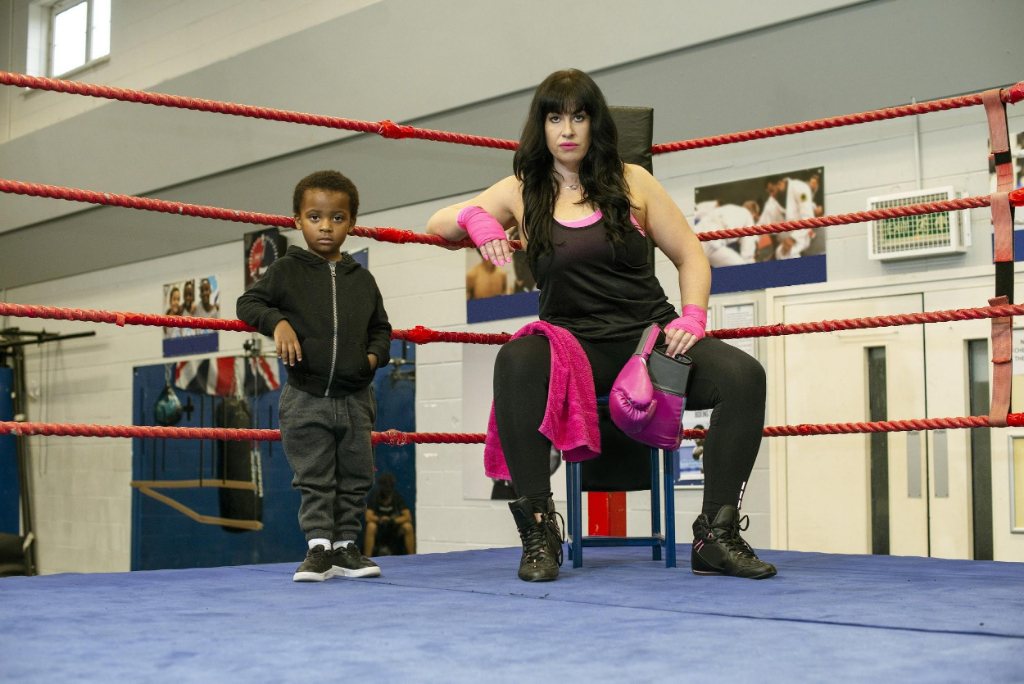
Your debut production Muvvahood played to great acclaim. What do you consider the most significant highlights from that time?
There were so many highlights. Muvvahood did so much for me. One of the most important things was that it created a partnership with me and director Julie Addy. That came about as I’d done a little scratch showing of an early draft of the piece and I thought, “Oh, I’m onto something here”. I was asked to develop it into a full show and at that point I realised I should probably get serious and get a director. I then approached Julie as we’d been in the same acting agency together a couple of years before that and I knew she’d started directing. The partnership worked from day one and we’ve been making work together ever since. Julie and I are a proper old school collaboration, I trust her judgement totally. I couldn’t make the work I make without her. 100 per cent.
Another highlight from making Muvvahood was again based around who I was making it with and for. When you’re a single parent it’s easy to start to feel isolated and feel that your experiences are yours and yours alone. Through researching the play and speaking to other mums for the verbatim section, I realised that my experiences were more universal, that other mamas were going through the same. That was such a powerful thing for me. It literally, overnight, changed my whole perspective. I started owning my status as a “single mother” and I just felt less alone. Then performing the piece, I obviously had lots of single mums coming to see the show and they were saying the same thing back to me – that from seeing the show, they too felt less alone. It was like suddenly discovering my team, this big circle of love and solidarity. Yes, it was a solo show, but it truly felt like a team effort.
How has the deserved success of that show and of Temporary changed your career and daily life?
I can’t say it’s changed much of my day to day life. Generally, it’s still the same old juggling routine at home, I just have more props and bits of set under my bed. I guess the biggest impact has been on my career and confidence to continue writing and creating. With Temporary, we went to Nottingham Playhouse and performed it as part of The Party Somewhere Else festival. That, for me, was insane! I’d never been able to tour before or do regional theatre, and to be performing in that theatre, and it was my own play, it just blew my mind.
Muvvahood also broke new ground by offering free onsite creche facilities for your audience. Fighter offers this service during the matinees. What prompted you to include this?
So much of my work is based around single motherhood and the challenges associated with it and of course one of the main barriers that I faced when my son was little was childcare. I’ve got a fridge magnet that says “I could’ve changed the world but I couldn’t get a babysitter” and those are the truest words ever spoken by a fridge magnet. The only way I could go to the theatre was to go and see a children’s theatre show with my child or pay out for a babysitter. When you’re on a low income, the cost of a ticket plus transport is bad enough, then on top of that there are babysitting costs – you just can’t do it. Obviously, I’m only one person and I can’t actually change the world, but I can try my best to help people with babysitting. Offering on-site creches at theatre shows helps to remove the barrier of sourcing and affording childcare. It makes one thing a teeny bit easier for parents, and that one thing might make all the difference.
Do you feel more theatres/events should begin to find ways to offer free creche facilities in the future?
Of course! But truthfully, it isn’t always possible. Some venues are not set up to be able to offer creche space and I do understand that. I think if a venue/event can do it then they should do it and if a venue can’t offer an onsite creche, perhaps there is another way? One of my Muvvahood shows was in a space where we just couldn’t make a creche work, but I got a local company to offer some sponsorship to offer babysitting bursaries in order to enable single parents to access the show without having to worry about childcare costs. I’d encourage other venues and theatre-makers to just try.
Your opinion video for The Guardian, “What is our problem with single mothers?” amassed an incredible number of views on Facebook in just three days, exceeding the figures for the others in the series. Why do you think that happened?
The whole thing with the video was totally unexpected. The Guardian approached me, having heard about Muvvahood, and asked me to write an opinion piece and then I went in, filmed it and forgot about it. I didn’t even know it had been released until I woke up to a rush of new Twitter followers and some weird comments on social media. The video just seemed to grow and it eventually went viral with people sharing it all over the place. I don’t think The Guardian expected it either; we were all surprised by the response. I got messages from all over the world from single mums thanking me for speaking up. I also experienced some pretty hardcore trolling – the less said about that the better! I’m still not really sure why that video went viral, it’s a strange feeling knowing that it had over a million views in three days. I guess maybe because it was something that hadn’t really been spoken about before.
Which medium do you prefer to work in: live theatre or tv/video? Why is that?
Live theatre. Every time. Like I said, I love a challenge. I love that feeling that you could go out on stage and flop – or it could be the best performance of your life. It’s the same as stepping into a boxing ring as there’s a whole heap of people watching you and anything could happen. Sometimes the stars align, and everything is perfect and you feel on top of the world. Sometimes, it just doesn’t go your way. But it’s part of the appeal: you do the prep, get your mind right and then give yourself over to the moment. Love it.
Finally, who are your main artistic influences both as a writer and a performer?
I’ve got many influences but one that springs to mind is the phenomenal Annie Siddons. When I was in early stages of making Muvvahood, I was trying to find other single mama writer-performers making work – you can’t be what you can’t see – and after hours of googling, I came across Annie. I went to see a work in progress of her show How (Not) to Live in Suburbia at Camden People’s Theatre and I remember being in the foyer before the show thinking please let this be good, please let me be able to relate otherwise I’m back to square one. I loved it. It made me die with laughter, it touched me, I related, I felt represented, it was witty and light and clever and yet dealt with some serious issues. Annie’s work is unapologetic and feisty and doesn’t conform. This is why I’m so passionate about representation; seeing Annie’s work made me feel like what I was trying to do was possible, that if she could do it, so could I.
Best of luck with Fighter, thank you so much for your time, Libby.
Laura Jorden
Fighter is at Stratford Circus Arts Centre from Thursday 25th to Saturday 27th April 2019 For further information or to book visit the theatre’s website here.
Watch the trailer for Fighter here:

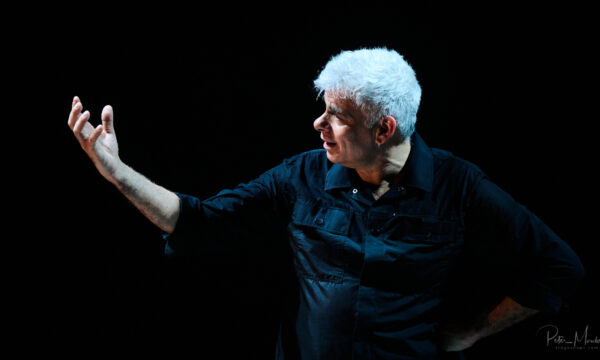
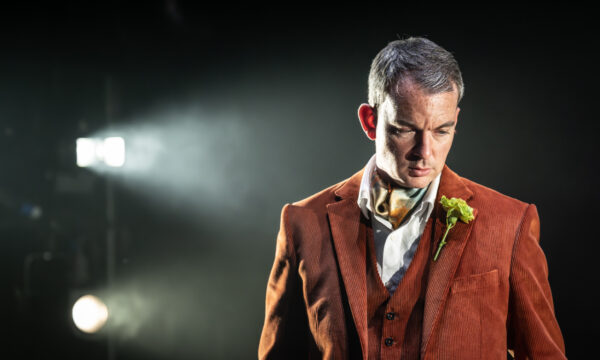
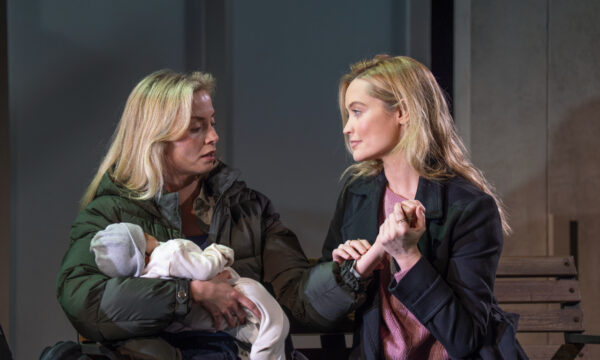
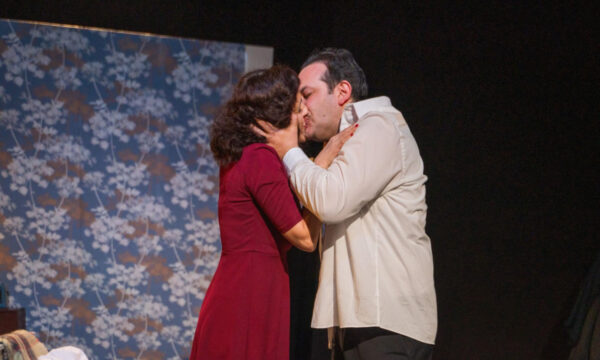
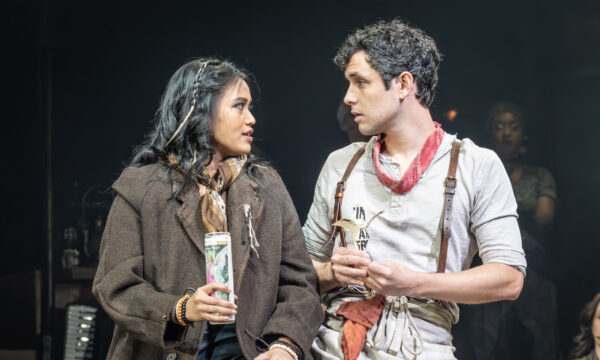
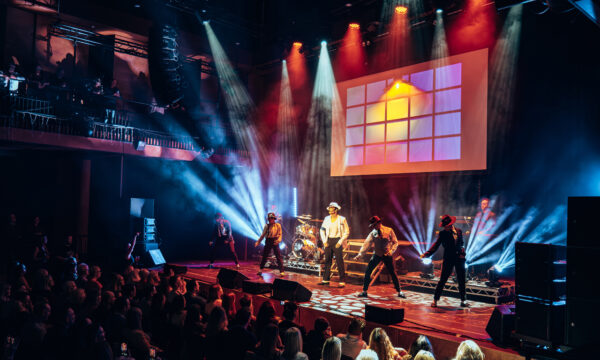
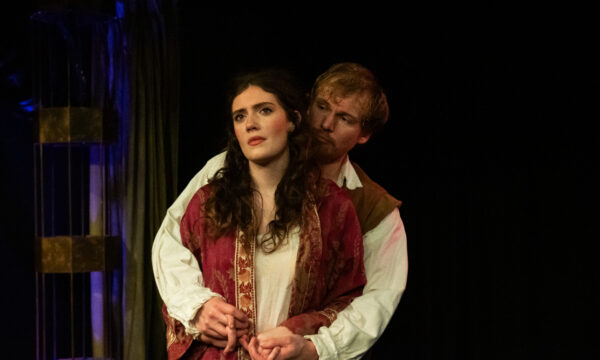
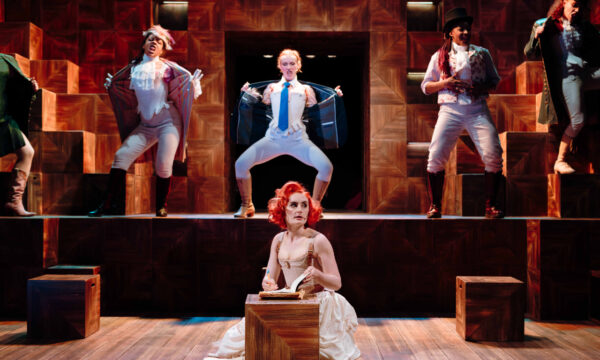
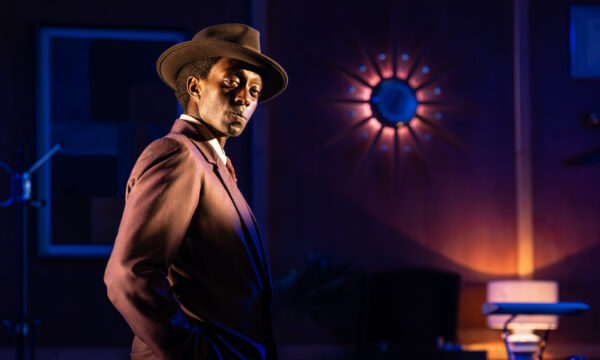









Facebook
Twitter
Instagram
YouTube
RSS